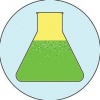86% of the world's biomass is located in the global South.
Submitted by ETC Staff on
While from space the planet may look green and rich with biomass, the dirty little secret of the biomass economy is that – just like fossilized carbon reserves (oil, coal, natural gas) – the living carbon reserves are not equally distributed. Worldwide, land-based vegetation stores an estimated 500 billion tonnes of carbon. However 86% of that (430 billion tonnes) is stored in the tropics and sub-tropics, while boreal and temperate eco-regions store only 34 billion tonnes and 33 billion tonnes, respectively.







